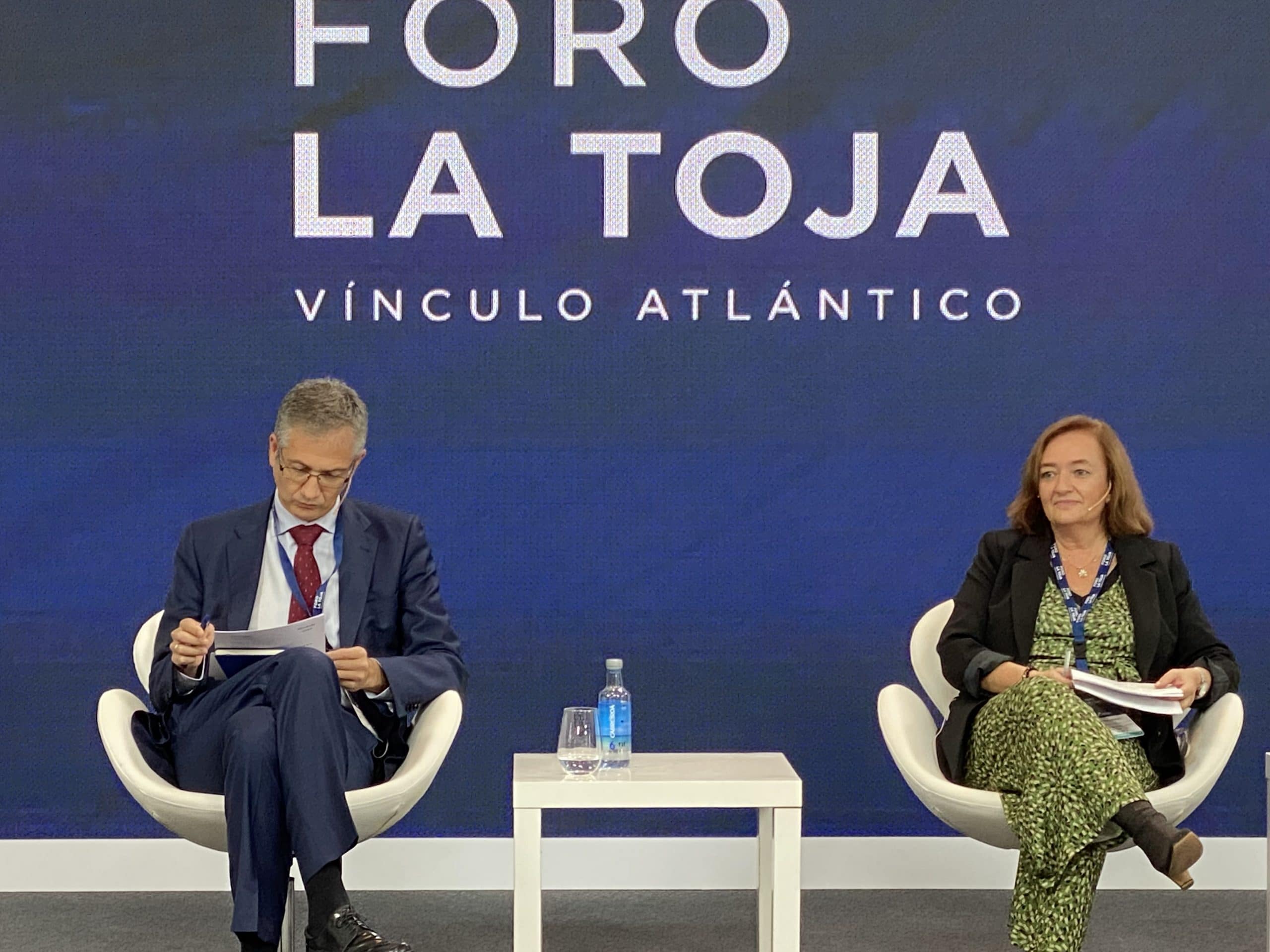- The President of AIReF indicates that one of the main challenges of fiscal policy is to begin a consolidation process that not only acts directly on public finances, but also on economic growth
- Cristina Herrero stresses the importance of fiscal consolidation, not as a synonym for short-term cuts but as efficiency in the use of public resources and structural reforms with an impact on the sustainability of public finances
- Cristina Herrero advocates a greater role for IFIs in the new European fiscal governance framework
The President of the Independent Authority for Fiscal Responsibility (AIReF), Cristina Herrero, took part today in the La Toja Forum “Three views of Spain”, in which she stated that the reform of the fiscal governance framework will be a key tool for sustainable growth. Cristina Herrero debated with the Governor of the Bank of Spain, Pablo Hernández de Cos, and the CEO of Citadel LLC, Ángel Ubide, with the President of the El Cano Royal Institute, José Juan Ruiz, as moderator.
The President of the institution analysed how the return to the system of European Union (EU) fiscal rules, suspended as a result of the COVID-19 crisis, should be addressed. In this regard, she stated that the system of rules should be considered as an essential element within a necessary comprehensive strategy for sustainable economic growth.
Cristina Herrero indicated that one of the main challenges of fiscal policy is to begin a consolidation process that not only acts directly on public finances but also on economic growth. To this end, the President stressed the importance of fiscal consolidation, not as a synonym for short-term cuts but as a synonym for improved efficiency in the use of public resources and implementation of structural reforms with an impact on the sustainability of public finances.
During her speech, the President of AIReF stressed that despite lax monetary and financial conditions, sustainability requires fiscal margins to be generated given the greater frequency of extreme shocks and profound changes in the functioning of economies associated with the challenges posed by globalisation, digitalisation, climate change, population ageing and the greater inequality with which we will emerge from the crisis. All these factors are common to the different EU countries, but they are particularly relevant in the case of Spain given the high level of public debt and the difficulties shown in reducing it.
Cristina Herrero added that a comprehensive, gradual strategy with a broad time horizon is required to generate these margins. In this context, reforms such as those of the tax system, the regional financing system or social security, labour reform and, of course, the fiscal governance framework will be necessary.
The fiscal governance framework and the role of IFIs
AIReF, like many EU Independent Fiscal Institutions (IFIs), is calling for clarification of the new fiscal framework and for its possible reform to be implemented in time for the deactivation of the escape clause, which is due to happen in 2023.
In this context, explained Cristina Herrero, IFIs can play a fundamental role in ensuring fiscal sustainability on the basis of the independence and objectivity provided by their analyses. The President believes that, in the long term, there is a case for moving towards a framework characterised by greater attention to debt and differentiation between countries, based on the analyses of IFIs. Furthermore, greater involvement of IFIs might make it easier for them to include aspects on growth and the quality of public finances. In this regard, she highlighted evaluation as a useful tool for strengthening the quality of public finances and for helping to reconcile multiple fiscal policy objectives.
Public spending evaluation
Regarding the evaluation activity of IFIs, Cristina Herrero explained how while some countries such as the United States, the United Kingdom, the Netherlands and Italy have a long tradition of evaluation, others have promoted it following the 2008 crisis with the aim of reducing public spending, while also including it in the budgetary process.
In Spain, efficiency in the use of public resources is enshrined at the highest level in our legislation. However, such evaluations have so far been few and far between. With the commissioning of the Spending Review and the creation of the new Public Spending Evaluation Division, AIReF consolidates its evaluation activity as a permanent function, which will allow it to fulfil the increasing number of commissions from the General Government.
Cristina Herrero explained that the ultimate aim is to promote evaluation in all tiers of government in order to achieve a true culture of public spending efficiency and effectiveness.







